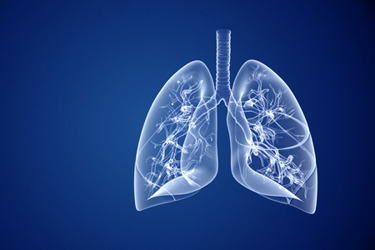Preclinical Evaluation Of New Antifibrotics In NASH-Induced Fibrosis Models
By Nagendra Ningaraj, Ph.D., MBA, CCRP Sr. Director, Scientific Affairs

According to the Pulmonary Fibrosis Foundation (PFF), there are approximately 200 distinct types of interstitial lung diseases (ILDs), all of which involve varying degrees of lung inflammation, scarring (fibrosis), and impaired oxygen absorption. Among these, Idiopathic Pulmonary Fibrosis (IPF) is one of the most prevalent and severe forms, primarily characterized by progressive scarring of lung tissue. It is estimated that nearly 250,000 Americans are currently living with IPF or related ILDs, with over 50,000 new cases diagnosed annually. Common risk factors associated with IPF include exposure to airborne pollutants, radiation therapy, certain medications, genetic predispositions, and autoimmune conditions. Unfortunately, there is no known cure for IPF, and the disease often leads to death within 3 to 5 years of diagnosis.
In parallel, nonalcoholic steatohepatitis (NASH), a severe form of fatty liver disease caused by excessive fat accumulation and inflammation in the liver, represents another significant fibrotic condition with growing prevalence. Both IPF and NASH are currently treated with limited pharmacological options — only two antifibrotic drugs, pirfenidone and nintedanib, have received approval, and neither is capable of halting disease progression. This highlights an urgent need for the development of new, more effective antifibrotic therapies.
SARS-CoV-2 has further complicated the landscape, with studies indicating that COVID-19 infection may contribute to lung fibrosis via multiple signaling pathways. In response, Aragen scientists developed a specialized mouse coronavirus model to study COVID-19-associated lung fibrosis in a BSL-2 environment. This model complements our extensive portfolio of 17 validated fibrosis models spanning multiple organ systems — including lung, liver, kidney, skin (scleroderma), NASH-induced fibrosis, and biliary fibrosis.
These studies have produced clinically relevant data essential for the effective screening and evaluation of new vaccines and antivirals, including several candidates that have already progressed into various phases of clinical trials. Aragen remains committed to supporting your antifibrotic drug development efforts by delivering reliable, high-quality preclinical services in this critical area of unmet medical need.
Get unlimited access to:
Enter your credentials below to log in. Not yet a member of Pharmaceutical Online? Subscribe today.
